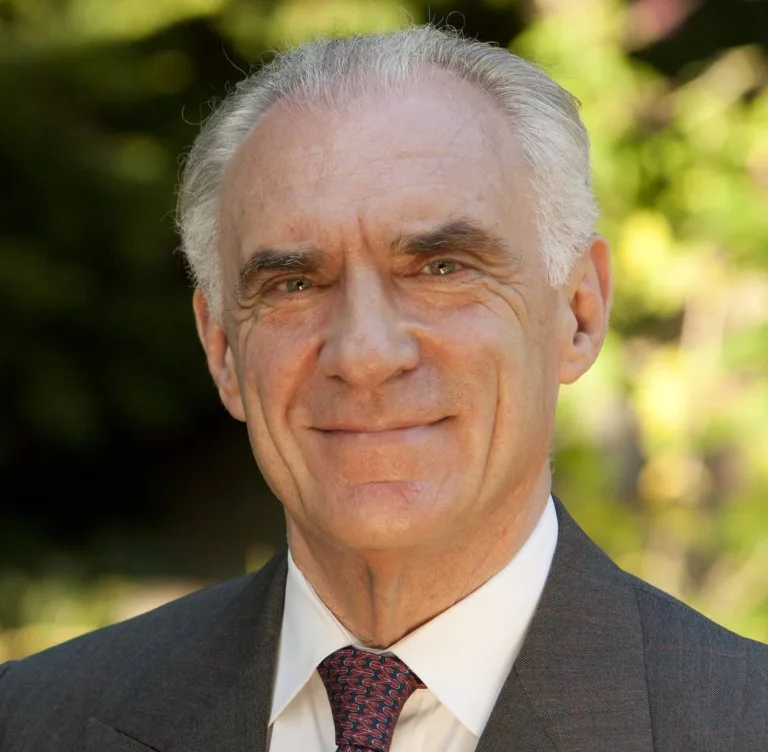

 By Icy Frantz
By Icy Frantz
What if we could step back from our life and take a good look from behind a one-way screen (think police lineup and eyewitness). What would we notice? What would we see? A crumb on our shirt collar leftover from breakfast? Five extra pounds around the middle we have been dying to lose? Our shoes that are too old, too pointy and too fashion backward? An awkward moment or an unattractive tic?
Or would we notice the lines on our face created by years of smiles and laughter? The warmth of our glow brought on by a quick exchange with a friend? Or the look of satisfaction at the end of the day?
Would our observations be kind or harsh? Complimentary or critical? Sometimes the way in which we see ourselves affects the way in which we see and treat others.
I would like to think that I am not a judgmental person, but in truth I am, and it something I need to work on constantly. Personally, I am my own worst critic. You would never know by the look of my messy car, with a slight dent on the exterior, or the way in which I go about the day, most of the time in comfortable sweats and my hair pulled carelessly back in a ponytail, but I can be a bit of a perfectionist. I would notice the crumb on my collar.
But perfectionism is more of an inside job. It is that high expectation we have for ourselves that can never be reached. It’s the should have been better, prettier, smarter, thinner. And, it’s a set up for failure. Perfectionism leads to negative self-talk and a harsh and judgmental way in which we view not only ourselves but others. Because the more accepting we are of ourselves, the more accepting we are of others and conversely, the more we judge ourselves, the more we judge others. So, I fight against my perfectionism because I know it skews the way in which I see myself and others.
Being judgmental also robs us of so much. We miss the chance to impact others and to be impacted. We miss the gift of connection. We are so busy feeling a false sense of superiority that we lose out on the potential of relationships. We avoid working on and accepting our own flaws and we miss the chance to learn about and understand others. Isn’t it better to nourish each other through difficult times? We need each other.
Of course, we make hundreds of decisions every day and we base these on judgment and that is not a bad thing. It keeps us safe and organizes our world according to our values. For example, we wear a coat when it’s cold out (unless you are my 13-year-old daughter) and we base this on a judgment we make about the weather and the consequence of feeling cold if we forgo the coat. But being judgmental is rushing to a conclusion without reason and without knowing the whole story. Being judgmental is often critical and harsh and based more on a moral and social evaluation rather than fact.
Early in my career, I worked as a community service coordinator at a high school. It was in this capacity that I had the opportunity to spend a weekend with a group of teenagers at Y.S.O.P (Youth Service Opportunities Project) in New York City working with the homeless and spending a night in a homeless shelter. I imagine we all went into the weekend with preconceived ideas, judgments that we had made about the homeless, but we left feeling very differently.
During the weekend, we had the chance to sit with the guests after we had served them and it was through these conversations that our real education occurred. We listened to their stories. We heard about lost jobs and illness and hard luck. We let go of judgment and allowed ourselves to feel a real human bond. I drove home thinking that any of these people could easily be me.
In fact, the learning was so profound that it led me to my current understanding that no matter what the affliction, it could be me, and that just about any circumstance could be followed by these eight words:
But for the Grace of God go I.
Addiction- But for the grace of God go I
Disease- But for the Grace of God go I
Struggling children-But for the Grace of God go I
Poverty-But for the grace of God go I
Mental Illness- But for the Grace go I
When our son was in elementary school, he was pretty disruptive, difficult and trying and it would have been easy to simply write him off, stick him in a timeout and attend to the better-behaved children. I may have, if I had not been his mother. I recall one parent who was concerned that his daughter’s work might get mixed up with our son’s because they had the same initials, implying that it would be a real injustice to his daughter. The teacher, however, took the time to get to know him, to look beyond his disobedience. She didn’t judge him. She tried to understand him. She recognized something in him that may have easily been missed. And what transpired was pretty incredible.
Halfway through the year, we arrived at the parent-teacher conference with trepidation – because that was just the way it was with this child – and the teacher brought out the most intricate and beautiful picture. The assignment had been to create a constellation and our son had created a masterpiece. Today he is studying architecture and I have to believe that his teacher’s ability to work beyond judgment played a hand in his current calling. You just never know.
Our dear friend Wilson Alling gave us the most wonderful gift many years ago, a collection of observations, inspiration, reflections, and quotes that he presented in a book entitled Silence to Light. The book sits on my bedside table and I treasure it, but this story, in particular, is one of my favorites.
On a stormy night, many years ago, an elderly and disheveled man and his wife entered a hotel lobby.
“All the big hotels are full. Could you possibly give us a room here?”
The clerk replied “all of the rooms are booked, but I can’t possibly send you back out in the rain in the middle of the night. Take my room.”
The next morning while the couple was preparing to leave, the elderly man said to the clerk, “you are the kind of manager who should be the boss of the best hotel in the world. Maybe someday I will build one for you.”
Two years passed and the clerk received a letter from the elderly man and a round trip ticket to New York City. When the clerk arrived in New York, the elderly man led him to the corner of 5th Ave and 34th street and pointed at a great new building that looked like a castle from a fairytale thrusting up into the sky.
“That,” said the old man, “is the hotel I have just built for you to manage.”
“Who are you?” asked the clerk.
“I am William Waldorf-Astor.”
The hotel was the original Waldorf Astoria and the young clerk who became his first manager was George C. Boldt.
(condensed from the Economic Press)
So, let’s throw off the black robe and come down from the bench. It’s not our job. Let’s treat ourselves kindly and in turn be kind to others too. Let’s support rather than gossip, and try to understand rather than condemn; embrace rather than reject. Connect.
Surprises await. You just never know.





